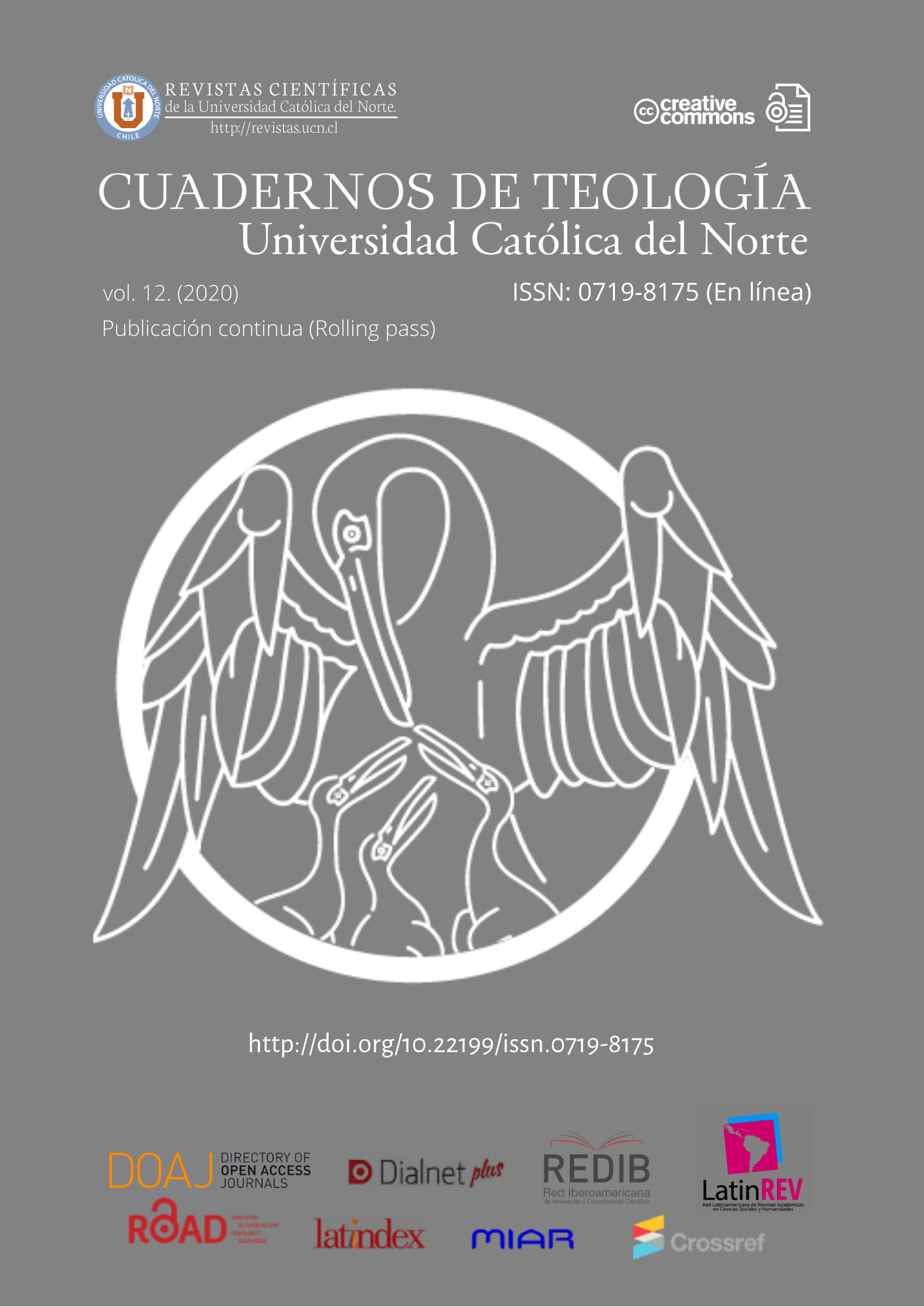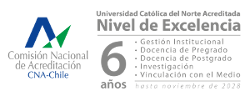The principle of creativity, in time of COVID-19 in the activity of the human being
DOI:
https://doi.org/10.22199/issn.0719-8175-2020-0009Keywords:
Constructive imagination, Vatican documents, Pandemic, Life scenarios, CoronavirusAbstract
An attempt is made to relate the concepts of the principle of creativity with the activity of each human being, based on the theological postulates originating from the Constitution Gaudium et Spes and Laudato Si’. It will also have as a reference, the article Creativity. A descriptive review on our capacity for invention and innovation from Veronika Díaz Abrahan and Nadia Justel. These texts, show a guiding bet for the construction of a believing discourse, on how the principle of creativity can be used as a paradigm for a better quality of life. Especially in a context such as the COVID-19 pandemic, which has originated various life scenarios for human beings and their activities.
References
Benedicto XVI. Vaticano II. Carta Encíclica Caritas in Veritate. 29 de junio de 2009. https://bit.ly/37Zr1Oa
Boff L. y Hathaway M. (2018). Ecología y teología de la naturaleza. Concilium: Revista internacional de teología, 378, 49-62. https://bit.ly/3rFZ4Tt
Biblia de Jerusalén. (1975). Bilbao: Desclee de Brouwer.
Pablo VI .Vaticano II. Gravissimum Educationis Momentum, sobre la educación cristiana. 28 de Octubre de 1965. https://bit.ly/3pAaqXh
Pablo VI .Vaticano II. Gaudium et Spes. 7 de diciembre de 1965. https://bit.ly/2Jv5l38
Díaz Abrahan, V. y Justel, N. (2019). Creatividad: una revisión descriptiva sobre nuestra capacidad de invención e innovación. CES Psicología, 12(3), 35-49. https://bit.ly/2KNi7L4
Francisco. Vaticano II. Carta Encíclica Laudato Si’. 24 de mayo de 2015. https://bit.ly/3nK9BuE
Francisco. (2020). La vida después de la pandemia. Ciudad del Vaticano: Editrice Vaticana. https://bit.ly/3rQuYNk
Instituto Nacional del Cáncer. (s.f.). SARS-CoV-2 [Def. 1]. En Diccionario del Cáncer. https://bit.ly/3823lZu
Juan Pablo II. Vaticano II. Redemtor Hominis. 4 de marzo de 1979. https://bit.ly/38I71yU
Juan XXIII. Vaticano II. Carta Encíclica, Mater et Magistra. 15 de mayo 1961. https://bit.ly/38LUDhs
López Guzmán, J. (2013). La bioética personalista en los planes de estudio universitarios. Cuadernos de Bioética, 24(80), 79-90. https://bit.ly/2WWOvNM
Llano Escobar, A. (2016). Volver a las fuentes [Editorial]. Selecciones de bioética, (23), 3. https://bit.ly/2MkF8FE
Llano Escobar, A. (2018). El bioeticista y la resiliencia [Editorial]. Selecciones de bioética, (26), 3. https://bit.ly/3hBlMaL
Rodríguez Illera, J. L. (2018). Educación informal, vida cotidiana y aprendizaje tácito. Teoría de la educación. Revista interuniversitaria, 30(1), 259-272. https://doi.org/10.14201/teoredu301259272
Villalobos Pérez-Cortes, E. M. (2011). Didáctica integrativa y el proceso de aprendizaje. México, DF: Trillas.
Published
How to Cite
Issue
Section
Copyright (c) 2020 Mario Vergara Amaya

This work is licensed under a Creative Commons Attribution 4.0 International License.
Los autores continúan como propietarios de sus trabajos, y pueden volver a publicar sus artículos en otro medio sin tener que solicitar autorización, siempre y cuando indiquen que el trabajo fue publicado originariamente en Revista Cuadernos de Teología (eISSN:0719-8175).












_(1).png)






